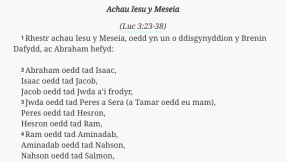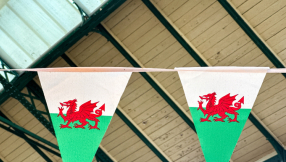Catholics work for reconciliation in Zimbabwe
Less than a year ago, ZANU-PF supporters terrorised MDC voters in a run-off for the presidential elections between President Robert Mugabe and the now Prime Minister Morgan Tsvangirai. Around 180 MDC supporters are believed to have been killed and many more were tortured.
One ZANU-PF man, known as Harry, was the chief torturer in the township of Chitungwiza and was in charge of gangs which hunted down MDC supporters.
Speaking to The Times he said that he now lives in fear that he will be murdered by people seeking revenge for his crimes. He also said that he recognised that his actions were wrong and that he was plagued by guilt.
He refuses to eat food prepared by others, in case it is poisoned, is afraid to go shopping, regularly sleeps in the bush and often thinks of suicide.
He said, “Maybe one morning, I will wake up murdered … I know other people won’t forget what happened.”
Now Harry is taking part in a process of bringing together both ZANU-PF and MDC supporters run by the Catholic Commission for Justice and Peace (CCJP).
Last October, three researchers from the CCJP interviewed a number of torture victims to start the process. Joel Nkunsane, a co-ordinator, said, “It was just horrible … We were reopening the wounds. We were listening, then we would leave them in pain, without giving any help.”
The CCJP set up a reconciliation process in Chitungwiza attended by 17 torture victims and seven ZANU-PF perpatrators, including Harry.
Nkinsane said of Harry, “He was sweating and shaking when he started … The guilt with him is still there. He said what he did was evil, that he caused death and suffering. He and the others said they wanted to look into the eyes of their neighbours and stay in harmony. They want to go back and talk it out.”
George Simango, 28, a local MDC leader in Chitungwiza was tortured last year. He was beaten, had boiling water poured on his back and had burning embers put into his T-shirt, which he was then forced to lie on.
He said, “For the time, I cannot forgive … But revenge is not the way. The only thing I want is a law that they should confess, give details of what they did and who sent them.”
Nkunsane said that he believed there should be public acknowledgment of violence in a similar ways to the Truth and Reconciliation Commission set up in post-Apartheid South Africa.
He said, “I fear they may go for a process of blanket amnesty, call it a time of madness and say let bygones be bygones … If that happens, there is never going to be a time that we can have another election without bloodshed.”













